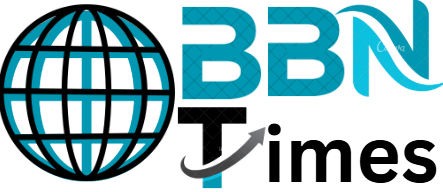Introduction
In the digital age, information moves faster than ever. Websites dedicated to sharing files, data, and exclusive content often become popular because they provide quick access to sought-after resources. One name that has been circulating in certain online circles is thejavasea.me, particularly in connection with a topic called AIO-TLP leaks. But what exactly does this mean, and why is it generating attention? This article explores the phenomenon, its origins, potential risks, and the wider implications of engaging with leaked content online.
Understanding Thejavasea.me
Thejavasea.me appears to be a platform that focuses on sharing a variety of online content. While its exact origins are not widely documented, it seems to be part of a niche community where certain types of resources—often referred to as “AIO” (All-In-One) packages—are posted for public access.
These AIO packages often contain tools, data files, or software bundles designed to help users access multiple services or gain certain advantages in online spaces. The “TLP” part in AIO-TLP could refer to a specific code name, project, or internal tag used by the site’s community.
What Are AIO-TLP Leaks?
AIO-TLP leaks are essentially data dumps or shared files released online without official authorization. The “AIO” portion means it likely includes multiple tools or resources in one bundle, while “TLP” may refer to a particular version, update, or specific set of files.
Such leaks might contain:
- Software or scripts for various purposes
- Digital credentials or keys
- Databases with sensitive information
- Guides and tutorials for niche activities
- Configurations or pre-built setups
The key detail is that these are “leaks”—meaning they were not originally meant for public distribution.
How the Content Might Be Shared
On platforms like thejavasea.me, content can be posted in several formats:
- Direct File Uploads – ZIP or RAR archives containing the leaked AIO-TLP package.
- Code Snippets – Individual scripts or text-based files posted directly.
- Instructional Posts – Guides that tell users how to use the leaked tools.
- Combination Threads – Where the leak is introduced alongside related resources.
Why People Seek Out AIO-TLP Leaks
People might look for such leaks for different reasons:
- Curiosity – Some want to see what’s inside and explore the technology.
- Free Access – Leaks sometimes include paid resources made available without charge.
- Competitive Advantage – In certain online communities, having unique tools can offer an edge.
- Research & Learning – Cybersecurity enthusiasts might analyze the content for educational purposes.
While some of these reasons may seem harmless, there’s an important ethical and legal dimension to consider.
The Risks Involved
Engaging with leaked AIO-TLP packages can carry significant dangers:
1. Legal Consequences
Downloading or using leaked material could violate copyright laws, licensing agreements, or even data protection regulations.
2. Cybersecurity Threats
Files from unverified sources might contain:
- Malware
- Ransomware
- Keyloggers
- Trojan horses
These malicious programs can compromise personal data or even take control of devices.
3. Privacy Issues
Some leaks may contain stolen personal information, and possessing or sharing such data could have legal repercussions.
4. Trust and Reputation Damage
Participating in communities centered on leaked materials can affect an individual’s credibility, especially in professional or academic settings.
Ethical Considerations
Beyond the legal and technical risks, there’s an ethical side to AIO-TLP leaks:
- Respect for Original Creators – Leaks undermine the work and effort put in by those who develop tools and content.
- Impact on Communities – Sharing unauthorized material can damage the integrity of online spaces.
- Encouraging Unethical Behavior – The more such leaks are normalized, the more others may feel encouraged to engage in similar activities.
How to Stay Safe Online
For those who encounter mentions of “thejavasea.me leaks aio-tlp” but want to avoid trouble, here are some precautions:
- Avoid Downloading Unknown Files – Especially from untrusted sources.
- Use Security Software – Antivirus and anti-malware tools can block threats.
- Stick to Legal Resources – Seek legitimate alternatives to leaked tools.
- Be Aware of Community Guidelines – Many forums and online groups prohibit sharing unauthorized material.
- Educate Yourself – Learning about cybersecurity helps in recognizing risky situations.
Alternatives to Using Leaks
If you’re interested in the type of tools often found in AIO-TLP packages, there are legitimate options:
- Free Open-Source Software – Many tools are available legally for free.
- Trial Versions – Some paid software offers trial periods for testing.
- Educational Discounts – Students and educators often qualify for reduced pricing.
- Official Community Resources – Many developer communities share useful resources lawfully.
The Bigger Picture – Leak Culture on the Internet
Thejavasea.me and similar platforms highlight the ongoing issue of leak culture in digital spaces. While some see leaks as a way to spread knowledge, others view them as harmful to the creators and companies involved. This ongoing tension fuels debates about internet freedom, intellectual property, and online ethics.
Conclusion
The keyword “thejavasea.me leaks aio-tlp” points to a niche yet significant phenomenon in the digital world. While the idea of accessing exclusive, all-in-one tools may sound appealing, it’s essential to understand the risks—both legal and technical—before engaging with leaked materials.
In the end, the safest path is to seek out legitimate resources and contribute to ethical online practices. The internet thrives when knowledge is shared responsibly, creators are respected, and users remain vigilant about their digital security.




